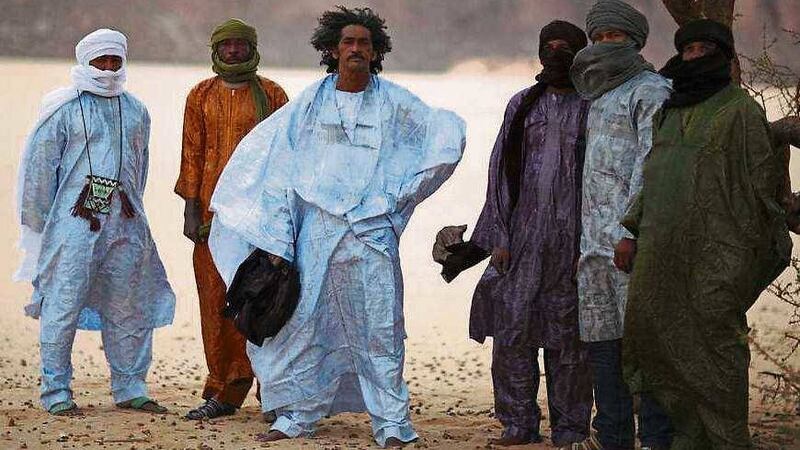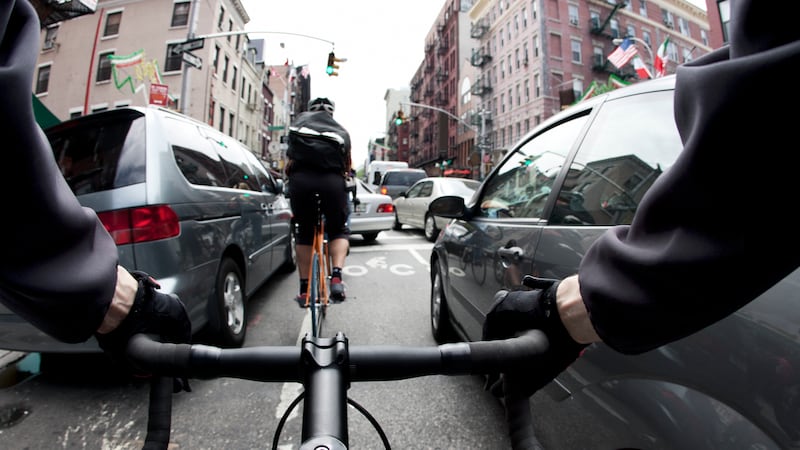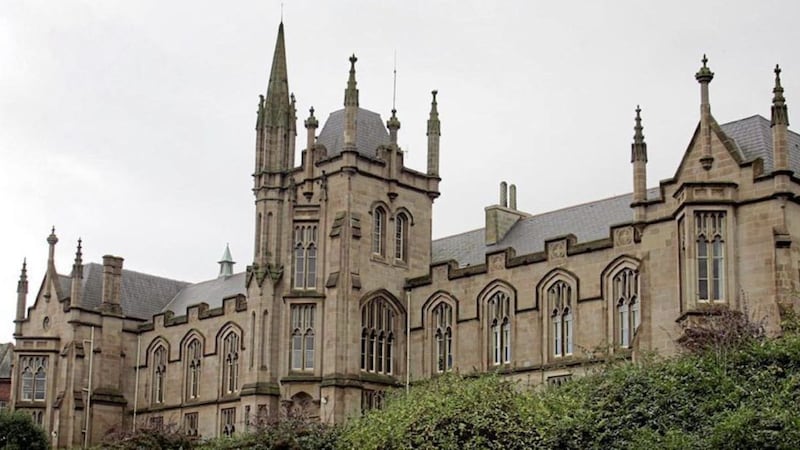'IRISHMAN held after suspected assassination attempt on African president', screamed the headline. A cinematographic image of the news pages rolling off the printing press, in a black-and-white Alfred Hitchcock sort of way, flashed through my mind.
I was of course innocent, well innocent of attempting to assassinate the president of Gambia anyway, although I was on my way to indulge in a bit of musical piracy.
It was John Peel and Andy Kershaw back in the late '80s on BBC Radio One who first introduced me to African music.
In between The Undertones, The Fall and The Dead Kennedys, Peel would regularly slot in some Congolese rhumba while Kershaw championed the Malian blues sound of Ali Farka Toure and the superb Zimbabwean group the Bhundu Boys.
I went to see the Bhundu Boys in the Mean Fiddler in London in the late 1980s. Being of a gangly stature I'm not a natural dancer - all arms and legs, creating a health hazard for those standing nearby so I try to avoid it. However, that night at the Mean Fiddler I found myself writhing into all sort of contortions with the tripping, jangling, guitar-driven sound known as 'township jive'.
I have a fair chunk of West African music on my shelves, particularly from Senegal and Mali, but touching into the Arabic-influenced sounds of North Africa as well. Orchestra Baobab, Youssou N'Dour and Baaba Maal from Senegal and Malian artists Ali Farka Toure and Toumani Diabate are fairly mainstream in terms of west African music aficionados.
Also worth a listen are Tuareg nomads Tinariwen - separatist rebels who roamed the Sahara Desert with guns and guitars strapped to their backs, trying to establish a homeland while listening to the music of Bob Dylan. Their albums combine harsh guttural vocals and tribal wails with punk-inspired guitar riffs.
My run in with the president happened during a visit to Gambia. I had vaguely planned to travel to Dakar, the capital of neighbouring Senegal, to take in some live music. However, I was told it would take days to get there by bus and the cost of hiring a driver and car for an 18-hour trip was prohibitive, although I did cross over into Senegal for a couple of days of getting bitten by mosquitoes in a mangrove swamp.
Back in Gambia I'd a list of Mbalax (Senegalese Latino-infused rock, with elements of soul and African rhythms) artists whose music I wanted to get hold of and so hired a taxi driver, who for his own security I'll call Y, to drive me to a market in the capital Banjul.
Y - a dreadlocked reggae fan - had the most battered taxi in Africa and on the way into the city we got stuck in a huge tailback of cars.
Taking a toke on the fragrant cigarette he was smoking Y suddenly pulled on to the hard shoulder and, with Bob Marley's One Love blasting out of the car speakers, raced past the gridlocked traffic until he hit the brakes and car came screaming to a halt.
The road ahead was blocked by armed soldiers.
"Aw shit. It's the president," moaned Y as he almost collided with a couple of Daimlers and their outriders who were speeding past.
Fortunately we weren't shot.
Y took me to a couple of music stalls in Banjul market before he was happy with the price that I was going to be charged - I think the real rip-off guys were going to charge £1 per album while Y secured them for a much more reasonable 25p, although he was muttering about how terrible it was that I should be discriminated against simply because I was white.
"Come back in an hour," said the owner of the music stall, tearing open boxes of blank tapes and slotting them into the machine before recording off an original.
While artists in Europe and America resent the loss of royalties that such musical piracy means for them it is common practice in Africa and many musicians accept that it is better for them to get their albums heard by as many people as possible to ensure that they get a good crowd when they play live.
When I was handed my purchases there was nothing but the artists' names written on the cassettes - Ismael Lo, Etoile de Dakar and Le Super Cayor and a dozen others - no track listings. But then great music doesn't need to be named, although it's probably not worth getting shot for.


